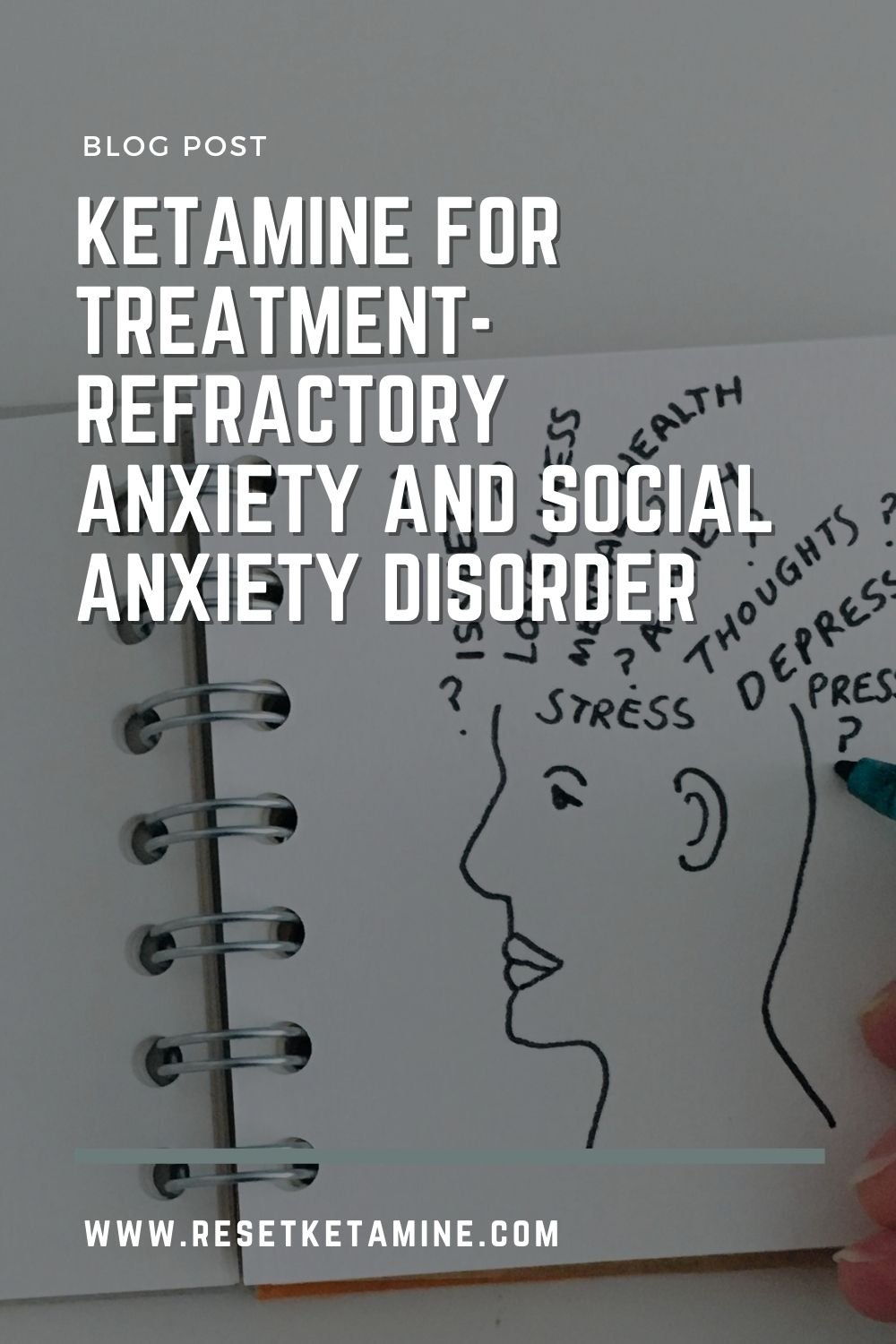Ketamine as a rapid antidepressant has been replicated in numerous studies. More recently, ketamine has been shown to help patients with obsessive compulsive disorder, post-traumatic stress disorder and treatment-refractory anxiety disorder (TRA disorder). However, some patients reported a recurrence of depressive or anxiety symptoms after a single treatment. This recurrence of symptoms leads to the question: How long can patients’ symptoms improve with repeated ketamine dosing in anxiety?
People with social anxiety disorder fear that they will say or do (involuntarily or otherwise) something that they think will be humiliating or embarrassing. People with social anxiety disorder will attempt to avoid their most feared situations. However, this is not always feasible, and they will then endure the situation, often with feelings of intense distress. Usually the condition will cause significant impairment in social, occupational or other areas of functioning.
Researchers in New Zealand investigated the safety and efficacy of ketamine in subjects with treatment-refractory generalized anxiety and social anxiety disorders. For three months, 20 subjects received one or two injections of ketamine weekly. How often the subjects received doses was based on how long the effects of ketamine lasted for each individual. Subjects who were free from anxiety symptoms five days or longer were dosed once a week. Those who experienced relief four days or less were dosed twice a week.
The main finding of this study is that most subjects’ symptoms were alleviated for three months with treatment. Subjects tolerated the ketamine treatment well and reported significant improvement in social and work functioning. Patients reported no signs of bladder cystitis or memory problems. Most subjects had dealt with anxiety since a young age, and the treatment helped them to function better in way they hadn’t experienced for years.
“Perhaps the most striking benefit of maintenance treatment was the improvement in work and social functioning. Most patients reported being markedly impaired by anxiety since adolescence. Their experience of ketamine treatment enabled them to make substantial changes to their lives (e.g. employment, study, making friends, engaging socially and travelling). Reduced anxiety meant everyday tasks were less onerous. Most patients reported an increase in their ability to concentrate, leading to improvement in their functionality. Those patients who were in employment reported they were more effective at work. For many, ketamine treatment reduced their social anxiety to a level where they were able to conceptualise that they could effect changes in their lives, and this experience was empowering for them. Patients gained greater perspective on life after having ketamine treatment, and many reported that even after treatment stopped they had a better understanding of their experience of anxiety. They came to recognize that it was ‘just anxiety’ and that anxiety did not define who they were as people. This treatment response meant that, for some of the patients, relapse was only partial and they were able to take what they had learned about themselves during ketamine treatment and continue to apply it in their everyday lives.”
“Patient’s experience of ketamine treatment enabled them to make substantial changes to their lives (employment, study, making friends, engaging socially),” a Psychiatric News Alert article quoted from a study. “Reduced anxiety meant everyday tasks were less onerous. Most patients reported an increase in their ability to concentrate, leading to improvement in their functionality.”
If you or someone you know suffers from generalized anxiety or social anxiety disorder, ketamine may be effective in helping you get relief. Contact us now and schedule your consultation today!
Reference:













Learn how ketamine therapy affects PTSD, when it may worsen symptoms, and how alternatives like the stellate ganglion block can offer relief.